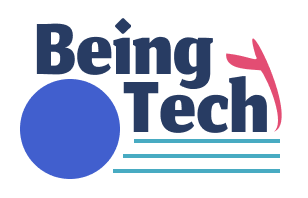Digital marketing can be done in several ways, including:
- Search Engine Optimization (SEO): This involves optimizing your website content and structure to make it more visible and rank higher in search engine results pages.
- Pay-per-click advertising (PPC): This involves placing ads on search engines or social media platforms that you pay for each click they receive.
- Social media marketing: This involves using social media platforms like Facebook, Twitter, Instagram, and LinkedIn to promote your brand, engage with your audience, and drive traffic to your website.
- Email marketing: This involves sending promotional emails to your subscribers to inform them about your products or services, promotions, and events.
- Content marketing: This involves creating high-quality content like blog posts, infographics, videos, and podcasts to attract and engage your audience.
- Affiliate marketing: This involves partnering with other websites or influencers to promote your products or services in exchange for a commission on sales.
- Influencer marketing: This involves partnering with influencers or celebrities to promote your brand or products to their followers.
- It's important to note that different digital marketing tactics work best for different types of businesses and target audiences. It's essential to research and understand your target audience to determine which digital marketing strategies will be most effective for your business.
SEO stands for Search Engine Optimization, which is the practice of optimizing a website to increase its visibility and ranking on search engine results pages (SERPs). The goal of SEO is to drive organic traffic to a website by improving its search engine ranking for specific keywords and phrases.
There are several key elements of SEO, including:
- Keyword research: This involves identifying the keywords and phrases that people are searching for related to your business, products, or services.
- On-page optimization: This involves optimizing the content, structure, and metadata of your website to make it more search engine-friendly. This includes optimizing page titles, headings, URLs, images, and internal links.
- Off-page optimization: This involves building high-quality backlinks to your website from other reputable sites. This signals to search engines that your website is authoritative and valuable.
- Technical SEO: This involves optimizing the technical aspects of your website, such as page speed, mobile-friendliness, and site architecture, to improve user experience and search engine visibility.
- Content creation: This involves creating high-quality and relevant content that meets the needs of your target audience and supports your SEO goals.
- Local SEO: This involves optimizing your website and online presence for local search results, such as Google My Business listings and local directories.
SEO is a complex and ever-evolving practice that requires ongoing attention and adaptation to stay ahead of the competition. It's essential to work with experienced SEO professionals who can help you develop a comprehensive SEO strategy that aligns with your business goals and budget.
Improving your Search Engine Optimization (SEO)
- Improving your Search Engine Optimization (SEO) can take time and effort, but there are several steps you can take to improve your website's visibility and ranking on search engine results pages (SERPs). Here are some tips to help you improve your SEO:
- Conduct keyword research: Use keyword research tools to identify the keywords and phrases that people are searching for related to your business, products, or services. Use these keywords strategically in your website content, metadata, and URLs.
- Optimize your website structure and content: Ensure that your website is easy to navigate, has a clear and concise structure, and contains high-quality, relevant, and original content. Use header tags, bullet points, and internal linking to make your content more readable and user-friendly.
- Optimize your website for mobile devices: With the majority of internet traffic coming from mobile devices, it's essential to ensure that your website is optimized for mobile devices. This means using a responsive design that adapts to different screen sizes and optimizing your website's page speed.
- Build high-quality backlinks: Building high-quality backlinks from reputable websites can help improve your website's authority and ranking on SERPs. Focus on building backlinks from relevant websites with high domain authority.
- Use social media: Social media can be an effective way to promote your website, increase brand awareness, and drive traffic to your site. Be sure to create and maintain an active presence on social media platforms relevant to your business.
- Monitor your website's analytics: Use tools like Google Analytics to monitor your website's traffic, user behavior, and other important metrics. Use this data to identify areas for improvement
Content:Technopedia

